Story by Yanmei Guan, courtesy of Cha Dao Life Magazine (Keemun Issue)
Photographs by Aya
The first time we met Yongzhong Xie, he strode into the Keemun tea factory with a 9-foot bamboo stick on his shoulder tied with fresh strands of bamboo leaves. He then used his self-made broom to clean the dust from high atop the machines just like the Monkey King.
Early life
“When tea shoots gradually grow after the first month of every lunar year,” said Mr. Xie, “I assume the opportunity for preliminary tea-making is around the corner.” Speaking of making tea, Xie is as excited as a child expecting the Lunar New Year. Compared to other children, he, when he was a child, also expected another holiday: Tea Holiday.
In the era of planned economy, teas were produced collectively and students were encouraged to participate in tea production. “I would expect the Tea Holiday in the tea-making season,” said Xie, “and I could climb mountains to pick teas with my grandmother and my parents.” Born into a tea family, Xie played a childhood game of who could pick more teas in a shorter time against other children. “Tea leaves went through withering as soon as they were picked, the smell of which made me feel good and comfortable,” recalled Xie. Thanks to the influences from childhood and talents bestowed by nature, he expresses his love for making tea in such an authentic manner.
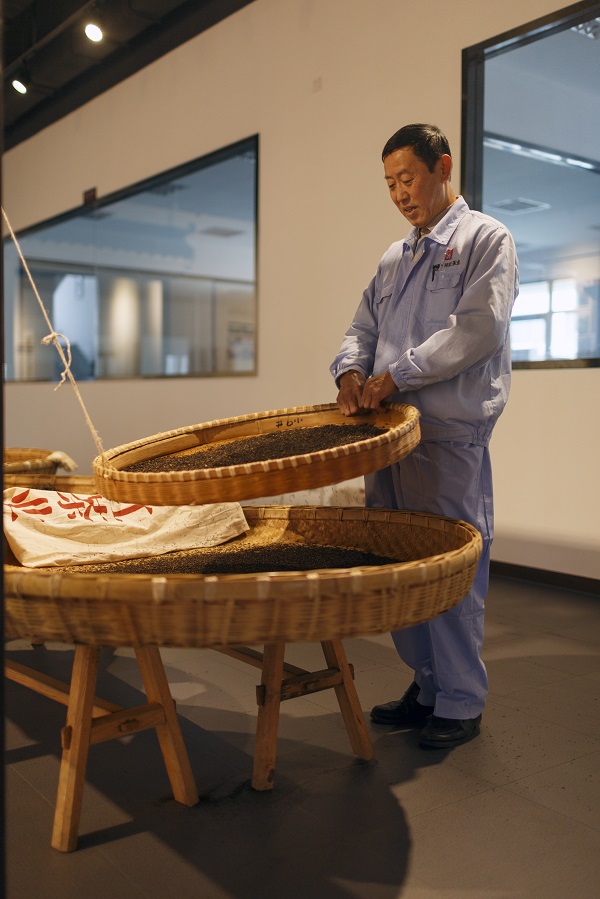
In the early 70s, Keemun tea factory was a popular local employer due to the reputation of Keemun black as a valued national gift. It has made many Keemun people proud. “Many people would praise the old tea processors of this factory when they went into town,” said Xie, “and I wanted to be complimented as one of them and do even better!”
As an assistant to his parents when he was young, Xie had a smooth start at the factory and endeavored to learn what others can’t do. “Master processors all came from other cities and I was the only local-born worker,” recalled Xie, “At first, they were unwilling to teach me and were strict with me. If you asked them questions that’s not specifically about your own positions, they would scold you.” In his eyes, these masters were magical with stunning skills. Being eager to learn from them, yet afraid of being scolded, Xie stood behind these master processors after completing his own daily work assignments to steal their skills.
“Even though you can teach them in many ways, many young people, in this era, are unwilling to learn,” said Mr. Xie with a sigh.
“Maybe they are afraid of hardwork?” I offered an answer. “Did you feel painful when learning to make tea?”
“No,” replied Xie without any hesitation, “I never felt painful.” The moment he finished his words, he put the crude tea in dustpan into bamboo sieve. Holding its edges and making his legs stand side by side, he shook his wrists and lifted and dropped down his heel to make tea on bamboo sieve jump with the rhythm. Upon the rhythm began, we could smell the tea fragrance. “This is called sieve-sifting,” said Xie who show what he could do best.
From the way his eyes rests on the teas we could tell concentration and full command. A symphony among hands, feet, eyes, and mind made tea leaves jump and fall. Just like dancing mates who have collaborated for several decades, he and tea leaves would never miss a beat when the music began.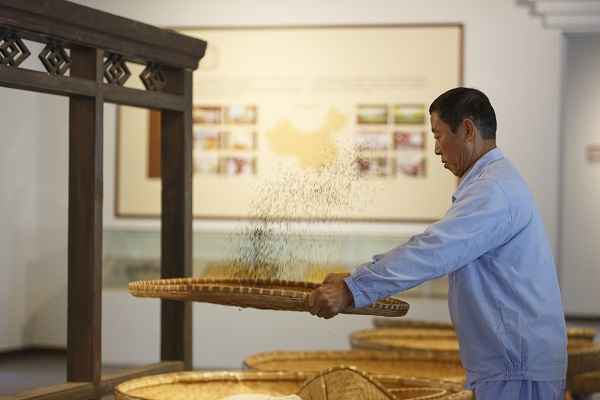
Strict mentor
Keemun is produced in 17 procedures, including withering, twisting, oxidation, drying, and 13 others. Among which sifting alone can be divided into sieve-sifting, rotate-sifting, screen-sifting, and bag-beating. Xie told us that basic skills of sifting would take about three to five years to horn for a fast learner. In peak season, processors doing manual sifting have to sift about 200 to 250 kg tea leaves on a daily basis, which makes their hands and feet swell.
“Which sifting procedure requires the most energy?” I asked.
“Rotate-sifting, for you have to make tea leaves run on it and do centrifuge movement,” answered Xie.
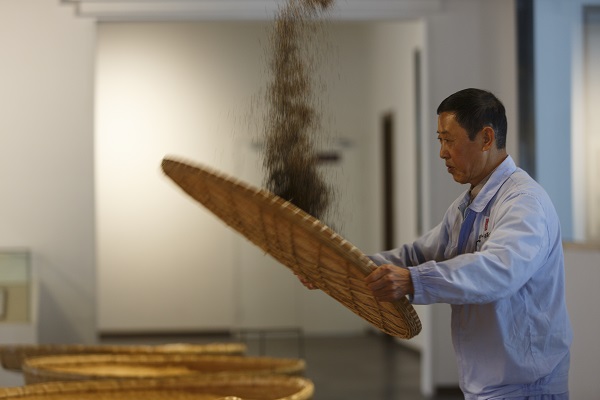
“What is the success to it?”
“The wrists’ dexterity,” replied Xie while rotating the sieve. And the rhythm changed. “You have to do it with your heart, without which dexterity is nothing and tea leaves will not move themselves,” added Xie.
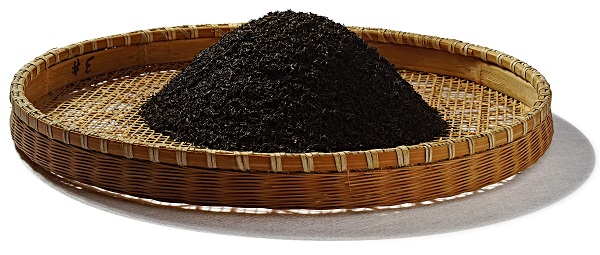
Tea leaves in his sieve, without our notice, gathered into a thick roundness with uniform ripping lines being formed in its surface. Suddenly, he lifted the sieve’s other side to make all tea leaves jump onto dustpan. The movement is so sharp that stunned me.
During the demonstration, Xie, due to a work conference, had to leave for a while. His tools were collected by Mr. Zhang, a young worker from Quality Inspection Department. I asked him whether he had done sifting.
“I don’t work in the Production Department, but workers in this Department have to learn this,” he replied with a smile. He told us that in every tea season, workers from Production Department had to practice sifting until their tutors were satisfied. “You have to shake like this for a whole day,” Zhang said, “and at the end of the day, some of them are unable to hold chopsticks or stand stably.”
“How does Xie treat you at work?” I asked.
“Dear and kind!” he replied.
“He is dear and kind to you, but not to us,” he added another comment right after. Xie would be angry at his apprentices if they don’t pay attention to his instructions for the first or second time. And you won’t have an opportunity to screw up a third time. “I will chew him out if someone spoils my tea leaves,” said Xie, “the tea season just lasts for two months. If you can’t learn fast, you will have to wait for the next year.”
Just like other tea processors in Keemun, Xie only drunk low grade teas made of coarse raw materials, carried the habits formed by the era of supply shortage and reserving the better grades for sale.
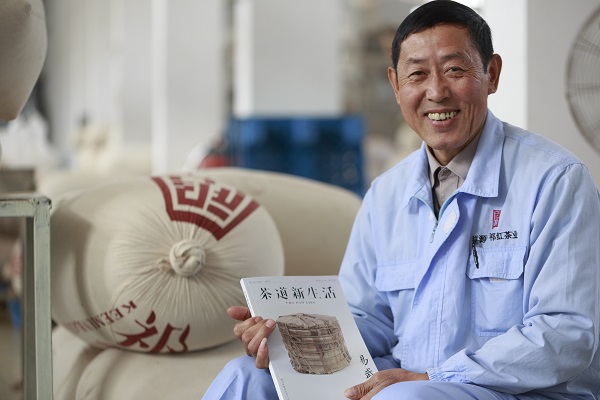
Multi-talents
Before leaving, we run into Xie again at a stair case full of wood working tools when he was working on feet-warming buckets used in winter with Mr. Dai’s help. The bottom corners of these buckets have been polished to smooth. Besides making tea, woodworking is another craftsmanship he possesses.
“Will you take apprentices or interns to learn your skills when you retire?” I asked.
“When I retire, I would be too old to make any tea! Just gonna have fun!”
Xie’s reply is still blunt, and this time, playful. Perhaps, when he retires and the next spring wind awakens the tea shoots, he may once again hike the tea mountains, following the trace of tea fragrance.
Retold by Si Chen
Tea Market
Get More Value from Your Tea: BRU Maker One
+41794574278
Jacque's Organics
(647) 804-7263